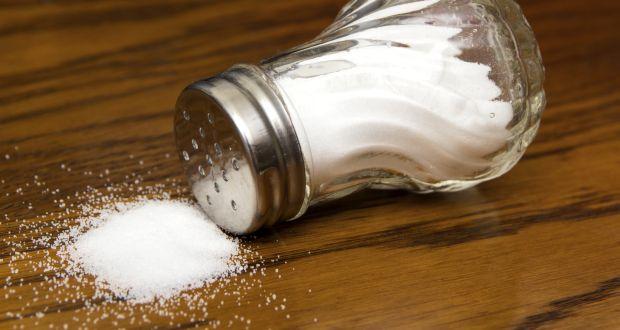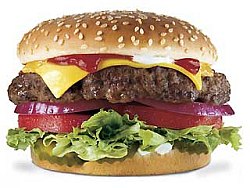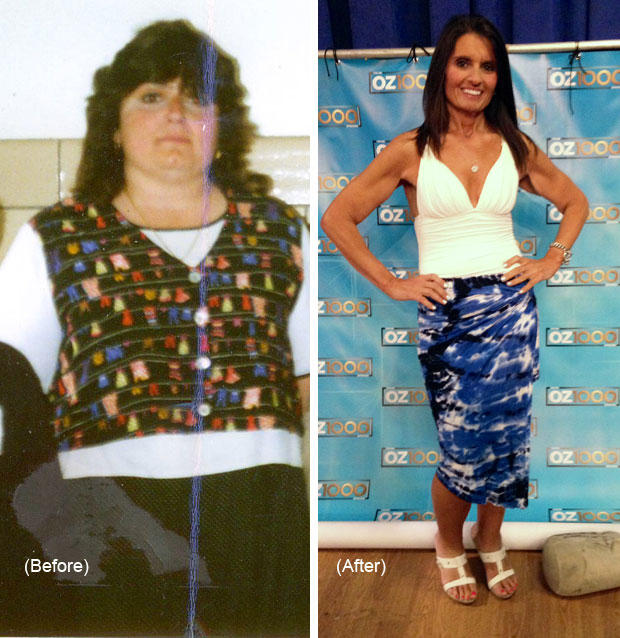Ah, the holidays. Here they come. The impossible mixture of nostalgia for a childhood Christmas or Hanukkah that may—or may not—have been real. The hope that this year the holidays will be different. The disappointment when it's not. And the food. The food.
The connection between eating and being happy is probably stronger during the holidays than at any other time of the year. For many of us, being happy at Christmas is equivalent to eating with abandon. There's something about Christmas only coming once a year. Something about working hard and deserving to celebrate. Something about feeding a vague sense of bewilderment with what seems to be making everyone else happy: food.
Ghosts of Christmas Past
The students in my retreats and workshops find that despite their attempts at good cheer through the holidays, most of them handle food without any kind of self-restraint, while hiding from themselves an underlying sense of despair about the weight they are gaining. They want to be happy, they want to have Christmases of roasted chestnuts and open fires, but they feel overwhelmed by expectations and memories. So instead of paying close attention to their needs and being gentle with themselves, they deal with their feelings by eating.
It's important to separate the nostalgia for Christmases past from the reality of this Christmas. Because the holidays come only once a year, we use it as a marking point to look back on the past and compare it with the present. If this year falls short of our memories of holiday happiness and joy, we become depressed or sad, then turn to eggnog and fudge for comfort. Yet our recollections of past holidays do not necessarily reflect what actually took place. For instance, when I remember my favorite Christmas, I envision my father taking my brother and me to see Santa Claus at the Daily News Building in New York City. I remember feeling joyful, loved, and content. But if I am really telling the truth, I should mention that I also stuck a pin in my brother's balloon, and I was convinced that Santa Claus was a liar because the previous year, he promised me a trip to Disneyland and it never happened.
When we compare past holidays to the present and turn to food for comfort, it is usually not because this holiday is so awful, but because we have warped the past into a time so flawless that it can never be achieved in this moment.
Before I met and married my husband, Matt, I recall one holiday when I received flowers from my friend Marilyn, a happily married mother of a preschooler. The card said, "Just in case you are feeling sorry for yourself because you are alone and think the holidays would be wonderful if you were happily married and had a gorgeous 3-year-old--you're wrong. They are as miserable as always. And by the way, happy holidays."
More from Prevention: Are You Obsessed With Food?[pagebreak]
...And Christmas Present
The truth about these holidays is that someone's balloon will always get a pin stuck in it (and sometimes, like I was, you're the one doing the sticking). During that 6-week season, we can also count on being lonely, sad, or depressed. Not just because we indulge in comparisons with the past, but because during any 6-week period we experience a broad range of emotions, some positive and some downright miserable. Occasional wretchedness is part of being alive, even in the season to be jolly. If we allow ourselves to be aware of the full range of our feelings, instead of living with the unrealistic expectation of unremitting joy, we will not gain 10 pounds in an attempt to bury our emotions.
Most of us never consider what we really want from the holidays. We go through the days in a glaze of too much food, alcohol, and socializing, and not enough of what truly fills us. I recently asked a student of mine to describe her ideal holiday. She said, "I'd eat fruitcake without green cherries. I'd cry when I missed my father, who died 3 years ago. I'd be 100% present for my son's delight. I'd only go to parties I really wanted to go to. I'd scream every time I heard Muzak versions of 'Silent Night,' and, oh yeah, I'd blanket the world with peace."
Once she said that, she realized there were things she could control (green cherries, parties, time with her son) and things she couldn't (losing her father, Muzak in elevators, world peace). When she paid attention to making the most of what she could control—by weaving part of what made the holidays special to her into each day—she ate no green cherries, binged only once, and her pants were no tighter on January 1 than they had been on November 15. Call it a Christmas miracle.
Holiday Homework
Here are some questions to think about:
- What is your ideal holiday?
- If you could have exactly what you want, who would you spend time with, where would you go, and what would you do?
- What would you give and what would you receive?
Write down your thoughts. Then make sure that you feed yourself daily with that--in addition to fudge and eggnog once in a while.
More from Prevention: 31 Days Of Stress-Free Holidays




